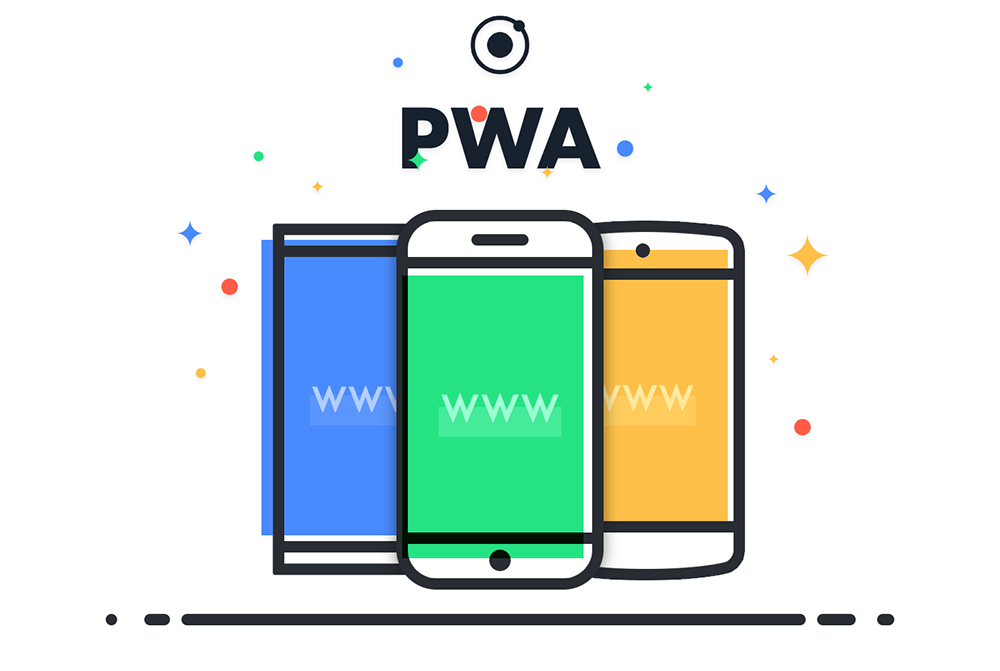Benefits of PWAs, how do they compare to native apps and what are the costs?
What are progressive web applications (PWAs)?
Progressive web applications (PWAs) are a new type of application that combines the best of both web and mobile applications. PWAs are built using standard web technologies, but they offer some features that are only available in mobile applications, such as offline mode and push notifications.
One of the main benefits of PWAs is that they can be used on any device, regardless of its operating system. This makes them a great option for businesses that want to create a mobile application but don’t want to spend the time or money developing separate versions for different platforms.
Another advantage of PWAs is that they can be cached by the browser, which means they can be used even when there is no internet connection available. This makes them ideal for situations where users need to access information offline, such as on a plane or in a rural area with limited or no cellular coverage.
Finally, PWAs are also more secure than traditional web applications because they are served over HTTPS, which encrypts communication between the user and the server. This means that PWAs are less likely to be hacked or tampered with than traditional web apps.
Overall, progressive web applications offer a number of advantages over traditional web and mobile apps. They are easy to develop and can be used on any device, regardless of its operating system. They are also more secure and can be used offline. If you’re looking for a new way to build mobile applications, PWAs may be the perfect solution for you.

What are the key benefits of progressive web apps (PWA)?
There are several key benefits to developing PWAs, including:
– Improved performance: PWAs load faster and feel snappier, thanks to features like server-side rendering and service workers.
– Increased engagement: With the help of push notifications, users can re-engage with your app even when they’re not actively using it.
– Offline functionality: Service workers allow PWAs to function offline or in low-connectivity areas.
– Improved discoverability: By being installable on home screens, PWAs make it easy for users to find and launch your app.
Overall, PWAs represent a major shift in how web apps are developed and delivered. By harnessing the latest web technologies, they offer a user experience that rivals that of native apps while still being accessible to anyone with a web browser. If you’re looking to improve your app’s performance, engagement, and overall reach, PWAs are definitely worth considering.
Which is better a Progressive Web App or a Native App?
There are pros and cons to both Progressive Web Apps (PWA) and Native Apps. It really depends on your specific needs as to which one would be better for you. Here are some things to consider:
– Ease of development: PWAs are generally easier and faster to develop than Native Apps, since they don’t require platform-specific code.
– Offline capabilities: PWAs can work offline, while Native Apps generally cannot. This is a big advantage for PWAs in areas with spotty or non-existent internet coverage.
– User experience: Native Apps usually offer a more polished and seamless user experience than PWAs. However, this difference is becoming less pronounced as PWAs continue to evolve.
– Cost: Native Apps tend to be more expensive to develop than PWAs.
– Distribution: Native Apps can only be distributed through app stores, while PWAs can be distributed through any web browser. This gives PWAs a larger potential audience within Huddersfield.
So which is better for you? It really depends on your specific needs and priorities. If you need an offline app with a polished user experience, then a Native App is probably the way to go. If you’re looking for a lower-cost option that can reach a larger audience, then a PWA may be the better choice.
What is the rough cost of creating a progressive web app?
Creating a progressive web app can be expensive, depending on the features and functionality you want to include. Generally, you can expect to pay around £5,000-£15,000 for a basic PWA (other agencies tend to charge more). If you want more advanced features, or need to custom develop specific functions, your costs will likely be higher.
Costs can also vary depending on the platform you’re using. For example, for Huddersfield based businesses developing a PWA for iOS can be more expensive than developing for Android, since iOS has more restrictive requirements.
However, there are some cost savings to consider as well. For one, you won’t need to create separate mobile apps and websites – a PWA can do both. Additionally, once your PWA is created, you won’t need to worry about app store submission or ongoing maintenance costs. In the long run, a progressive web app can be a more cost-effective solution than traditional mobile apps. Contact Huddersfield Apps for an in dept information about PWA.
